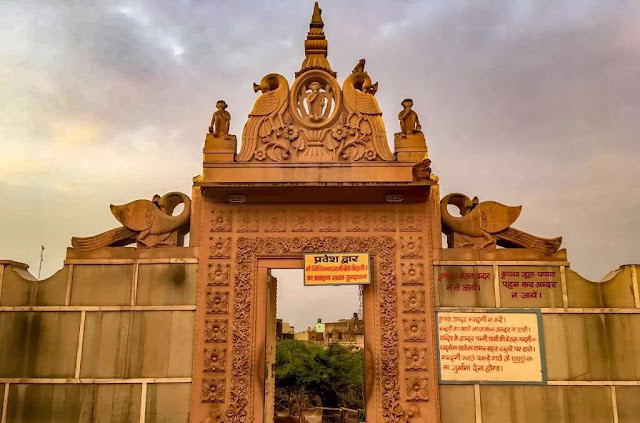Nidhivan Temple, Vrindavan: The Forest of Divine Secrets
Nidhivan,
meaning Forest of Treasure, is one of the most mysterious and
spiritually charged places in Vrindavan, located in the Mathura
district of Uttar Pradesh. It is revered as the sacred grove where Lord
Krishna performs the divine Raas Leela with Radha Rani and the Gopis
every night.
Mystical Beliefs &
Legends
- Divine Raas Leela:
After the final aarti around 5 PM, no one—neither humans nor
animals—is allowed to remain inside Nidhivan. It is believed that Krishna
and Radha descend to perform the celestial dance, and any attempt to
witness it results in severe consequences such as blindness, insanity, or
even death.
- Rang Mahal Rituals:
Inside Nidhivan lies the Rang Mahal, where priests prepare a sandalwood
bed, place paan leaves, sweets, holy water, bracelets,
and Neem datun for Krishna and Radha. By morning, these items
appear disturbed or consumed, as if the divine couple had rested there.
- Living Trees as Gopis:
The grove is filled with hollow, bushy trees with downward-bending
branches. Locals believe these are Gopis in tree form, who come
alive at night to dance with Krishna and return to their tree form by
dawn.
- Rock Garden Footprints:
A nearby rock garden contains footprints of young Krishna and his calf,
believed to be remnants of his childhood play. Legend says the rock was
once a mountain that melted under Krishna’s divine touch.
Temple Architecture &
Environment
- Nidhivan is not a conventional temple
but a sacred grove with a small shrine and the Rang Mahal at
its heart.
- Despite the dry terrain, the
trees remain lush and green year-round, defying natural logic—a
phenomenon attributed to divine energy.
- The Tulsi plants grow in pairs,
symbolizing Radha and Krishna’s eternal union.
Scriptural &
Historical Context
- Nidhivan is closely associated with Swami
Haridas, the 16th-century saint and musician whose devotion led to the
manifestation of Banke Bihari Ji.
- Though not explicitly mentioned in
major scriptures, the Bhagavata Purana and Vaishnava traditions
support the concept of Krishna’s nightly Raas Leela and divine play in
Vrindavan.











Post a Comment